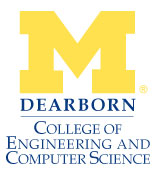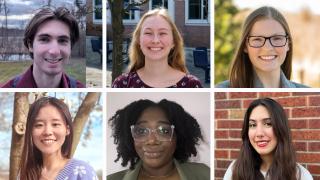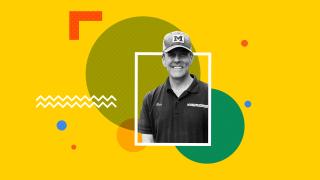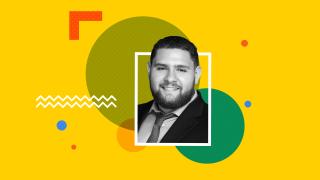

“The IAVS Futures Committee has been exploring possibilities for enhancing research through strengthened ties with industry and better communication with the Office of the Vice President for Research; and a sub-committee of the CECS Administrative Council has explored possibilities for enhancing K-12 outreach,” said CECS Dean Tony England.
“Through these explorations, a reorganization plan has emerged that I believe will move us in the right direction.”
On June 1, the functions of the Institute for Advanced Vehicle Systems (IAVS) and Henry W. Patton Center for Engineering Education and Practice (HP-CEEP) merged. The new IAVS/HP-CEEP will become the hub for research and integrative learning experiences.
"With one organization, we address the need to connect faculty research with experiential learning. It brings the teaching function closer to the research function,” John Cristiano said.
Cristiano and Ghassan Kridli now serve as co-directors of IAVS, with Cristiano continuing to oversee HP-CEEP. England said the appointment of co-directors recognizes the importance of both faculty teaching and research.
The new IAVS/HP-CEEP will emphasize engaging students in industry projects, internships and co-op opportunities, with Tony DeLaRosa and the CECS Cooperative Education Program becoming a part of the organization.
Also on June 1, Engineering Professional Development (EPD) became Extended Learning and Outreach (ELO), led by Jeanne Girard. ELO will expand the functions of EPD to include greater educational opportunities for veterans, pre-college and non-traditional students, and more outreach to K-12 school districts. The office also will encourage professional development activities for alumni.
“Picture education as a lifelong opportunity. We want to bridge the gap between K-12 education and the engineering college,” England said. “After graduation, there’s a saying, ‘If you’re not continuing with professional development, you’re irrelevant by age 30.’ ELO will address that, as well, offering educational opportunities for our alumni.”
Kathryn Tamborino will join ELO to expand established relationships with regional K-12 school districts. She will continue to work in collaboration with the Division of Enrollment Management and Student Life to connect with students and their parents, with a special emphasis on recruiting women to UM-Dearborn’s engineering and computer science programs.
England believes recruiting female students is imperative to building strong programs.
“A wisdom that I share with many industry leaders is that inclusion of women in engineering projects and programs yields better results,” England said. “Scientific studies show that when diverse teams address problems, they come up with better solutions.”




